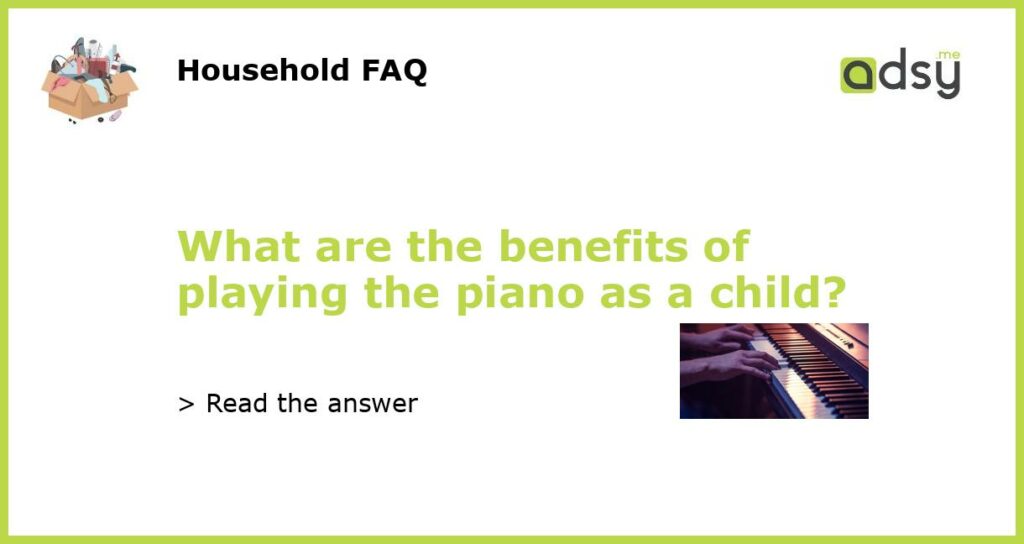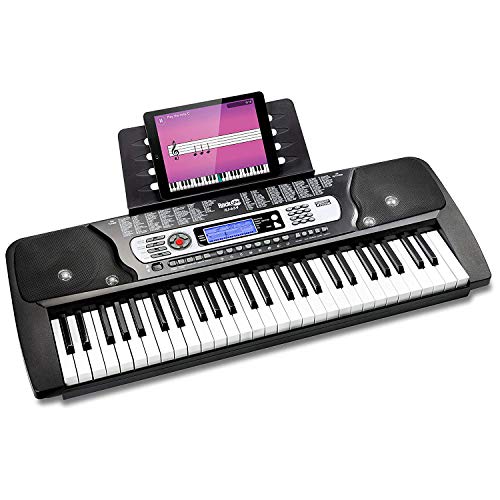BENEFITS OF PLAYING THE PIANO AS A CHILD
Playing the piano is a popular extracurricular activity for children, and for good reason. Not only does it offer a creative outlet, but it also provides numerous benefits for a child’s development. From cognitive and emotional growth to improved motor skills and discipline, playing the piano can have a lasting impact on a child’s life.
Cognitive Development
Playing the piano engages both hemispheres of the brain, stimulating cognitive development. Studies have shown that children who play an instrument, such as the piano, have higher IQ scores compared to those who do not. Learning to read sheet music, memorizing songs, and coordinating both hands simultaneously require a level of mental dexterity that can enhance problem-solving skills and critical thinking abilities.
Additionally, playing the piano can improve a child’s memory and concentration. As they learn to read and play music, they must remember the notes, timing, and dynamics, which exercises their memory muscles. This enhanced focus and attention to detail can transfer to other areas of their life, such as academics or other extracurricular activities.
Emotional Development
Playing the piano can also have a positive impact on a child’s emotional development. Music has the power to evoke strong emotions, and when a child learns to express themselves through playing the piano, it can help them regulate their emotions and develop a sense of self-expression.
Playing the piano can serve as a form of stress relief, allowing children to unwind and relax. The act of playing music can provide a sense of accomplishment and boost self-esteem, especially when they can perform in front of others or participate in recitals. This positive reinforcement can contribute to a child’s overall emotional well-being.
Motor Skills
Playing the piano requires coordination between both hands and precise finger movements. This can help children develop fine motor skills, improving their dexterity and hand-eye coordination. The repetitive nature of practicing scales, chords, and complex pieces also helps children develop muscle memory and finger strength.
Furthermore, playing the piano can improve a child’s sense of timing and rhythm. The constant practice of counting beats and maintaining a steady tempo can enhance their internal sense of timing, which can be beneficial in other areas that require timing and coordination, such as sports or dance.
Discipline and Perseverance
Learning to play the piano requires discipline and perseverance. It takes time and effort to master a musical instrument, and children who stick with it develop a strong sense of discipline and the ability to work towards long-term goals.
Regular practice is essential for progress, and children who commit to practicing the piano develop a sense of routine and structure. They learn the value of hard work and patience, as they gradually improve their skills over time. These qualities can transfer to other aspects of their life, such as schoolwork or personal projects.
Social and Cultural Appreciation
Playing the piano often involves participating in music lessons, recitals, or even joining a band or orchestra. These activities provide opportunities for children to socialize with peers who share similar interests and engage in collaborative experiences.
Moreover, learning to play the piano exposes children to various musical genres and composers from different time periods and cultures. This can foster a greater appreciation for music as an art form and enhance their cultural awareness.
In conclusion, playing the piano as a child offers a wide range of benefits. Beyond the enjoyment of creating music, it can support cognitive and emotional development, improve motor skills, teach discipline and perseverance, and foster social and cultural appreciation. Whether a child pursues a career in music or not, the skills and experiences gained from playing the piano can have a lasting impact on their overall development.






